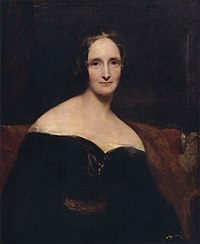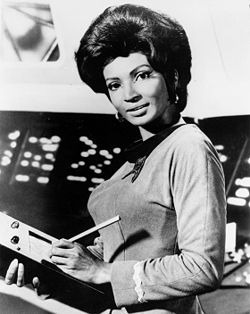The fiction which we imbibe on a daily basis plays an undeniably large role in the collective creative conscious of our society. The things we imagine have direct correlations to the things which we have already seen imagined. It has been said that every idea stems from another, and also suggested that there is no true originality in the world. While this may be an extreme interpretation of certain evident truths, it is also not to be taken lightly. The things we come up with, imagine and daydream about are all directly related to what we have seen, done, or been told about in our lifespans. This is exactly why fiction, and the depiction of different minorities, namely women, in our fiction is so important.
In fact, what many people consider the very first science fiction novel, Frankenstein: or, The Modern Prometheus (1818), was written by Mary Shelley.
While it is generally accepted that science fiction itself, as a genre, has an overwhelmingly male audience, women have always played a prominent, if understated, role.
In the early 20th century many female fiction writers wrote under pseudonyms or gender ambiguous names.
C.L. Moore: Catherine Lucille Moore, famous for her contributions to Marvel’s famous series “Weird Tales.” Andre Norton: named “Grand Master of Science Fiction” by the Science Fiction and Fantasy Writers of America in 1984
Leigh Brackett Hamilton: whose last credit before her death was the script for ''The Empire Strikes Back'' (in collaboration with Laurence Kasdan).
A New York Times article entitled “Women And Science Fiction” published in 1982, by Susan Schwartz, illustrates a budding and blossoming world for female science fiction writers, a world which had already been paved by several trailblazing women, and sheds much light on the progression of women in the field of science fiction writing.
By the early 60's so many women had entered the field that aficionados liked to boast that sf had conquered sexism. Ursula Le Guin, Anne McCaffrey, Joanna Russ and Kate Wilhelm brazenly published under feminine first names, and science fiction fans, traditionally a vociferous lot, didn't seem to mind…
An amusing anecdote from the piece tells of a James Tiptree who began to win multiple Hugos and Nebulas, the aforementioned prestigious science fiction awards, for gripping and horrific stories such as “The Women Men Don’t See.” Tiptree came to be lauded by several male authors as the masculine reply to the recent overwhelming female contributions. Shwartz quips:
Science fiction fans and writers admired Tiptree's adventurous life, which included a childhood in India and Africa as well as wartime security work in Washington India and Africa and worked in the Pentagon during World War II.
Television series like the futuristic “Star Trek” introduced female actresses to the country in a way that had never been seen before. The original series included a female crewmember aboard the Enterprise
Nichelle Nichols
The privilege of working with such an unrestrictive genre should not be taken so lightly. There are benefits and pitfalls to being able to portray a futuristic or fantastical society. What we as a people have to strive towards is depicting what the future should actually hold, not what the public has been groomed to accept or pay for. Speculative Fiction, as an art, is a powerful tool, and a valuable weapon that can be used for the betterment of society as a whole. It simply needs to be used in the right way.
My actual essay:
http://www.scribd.com/doc/75306447
Sources:
http://www.wiscon.info/
http://www.nytimes.com/1982/05/02/books/women-and-science-fiction.html?pagewanted=all
http://www.startrek.com/database_articles
http://en.wikipedia.org/wiki/Gender_in_speculative_fiction




Sooo cool! Brantenberg's, Egalia's Daughters is playing out in my brain on a regular basis and I have a tattoo inspired by a Marion Zimmer Bradley novel. I dunno if you're into fem sci-fi, personally, but your presentation was unexpected and soul quenching and FUN! Awesome. Thank you for making it.
ReplyDelete